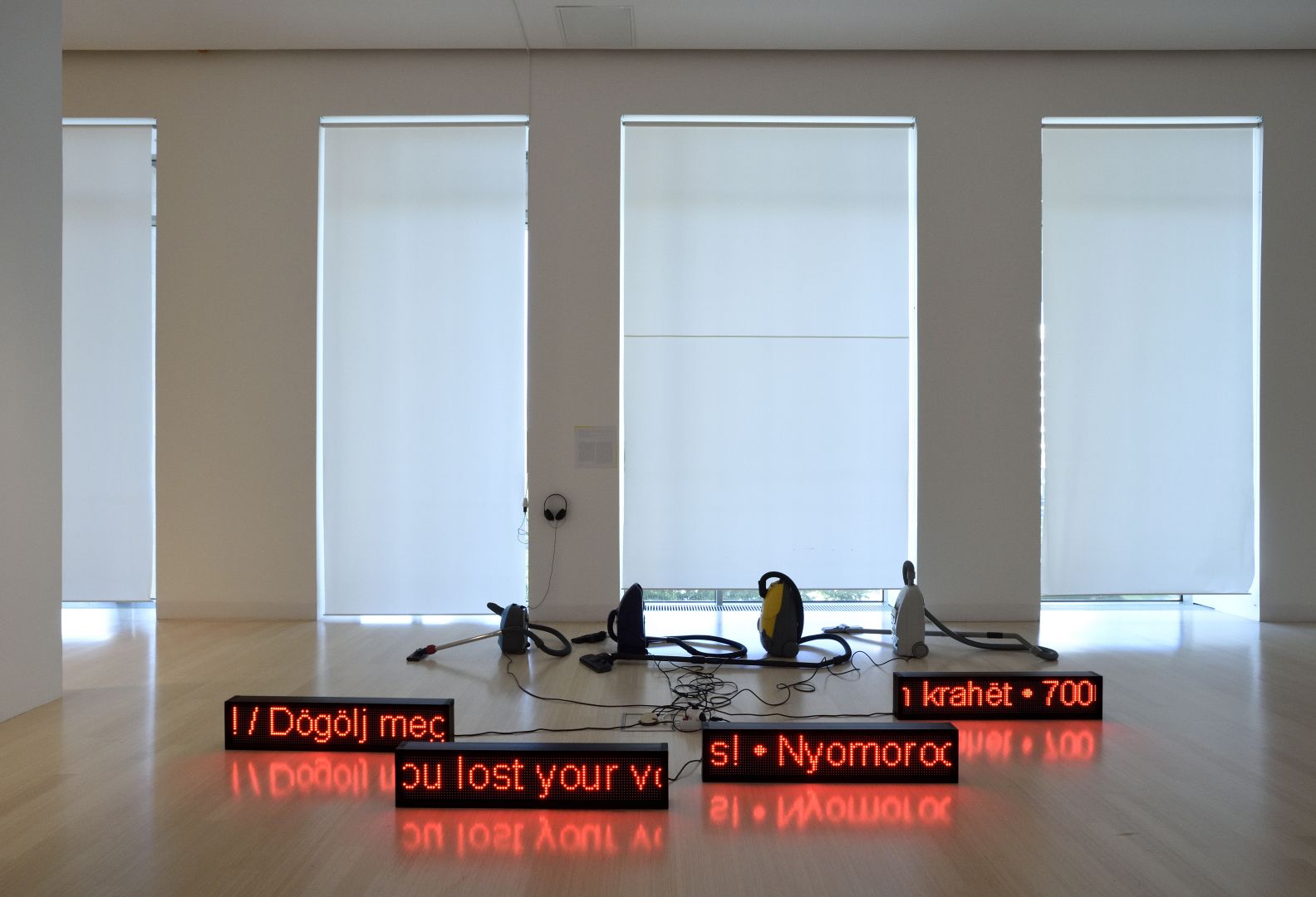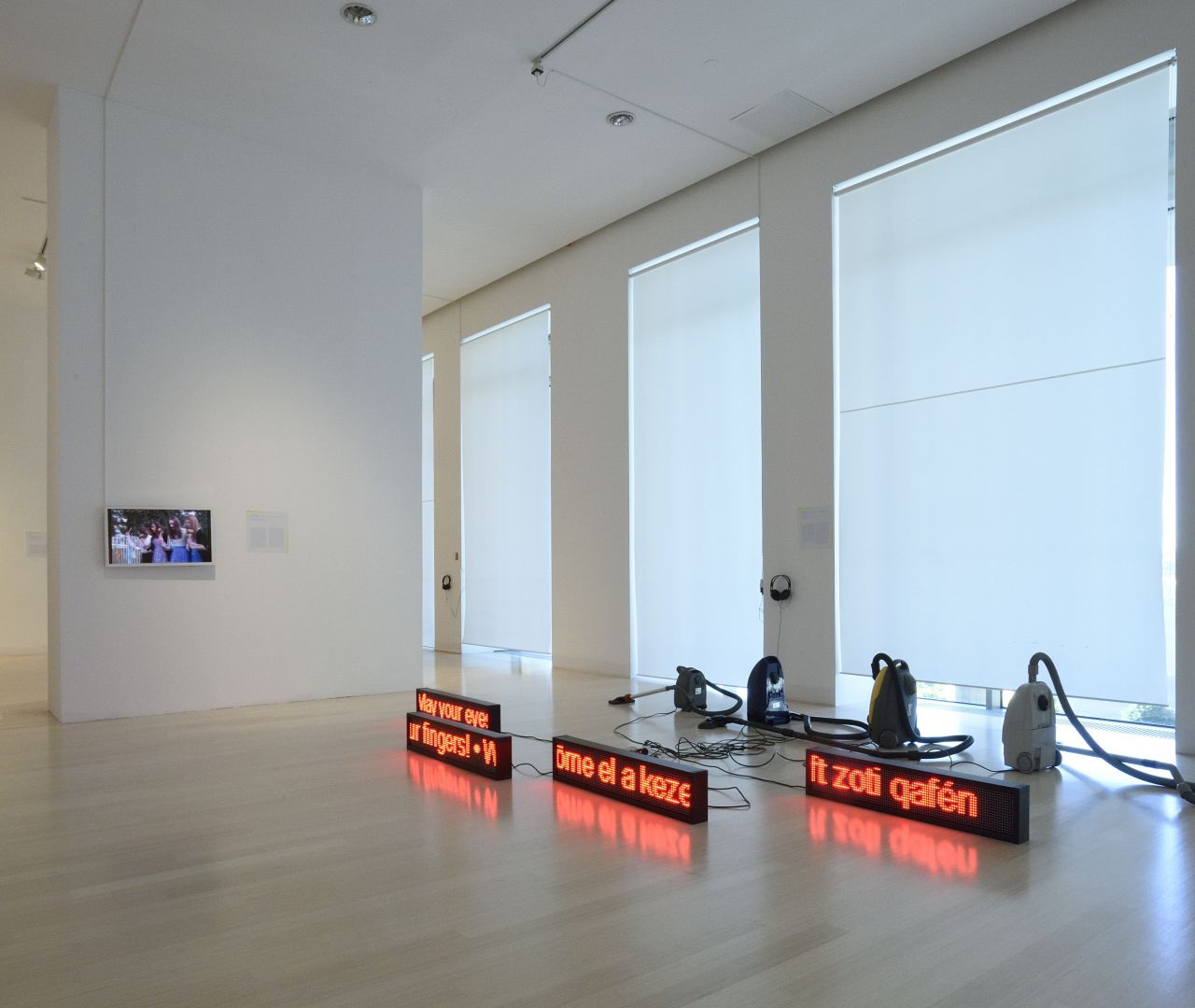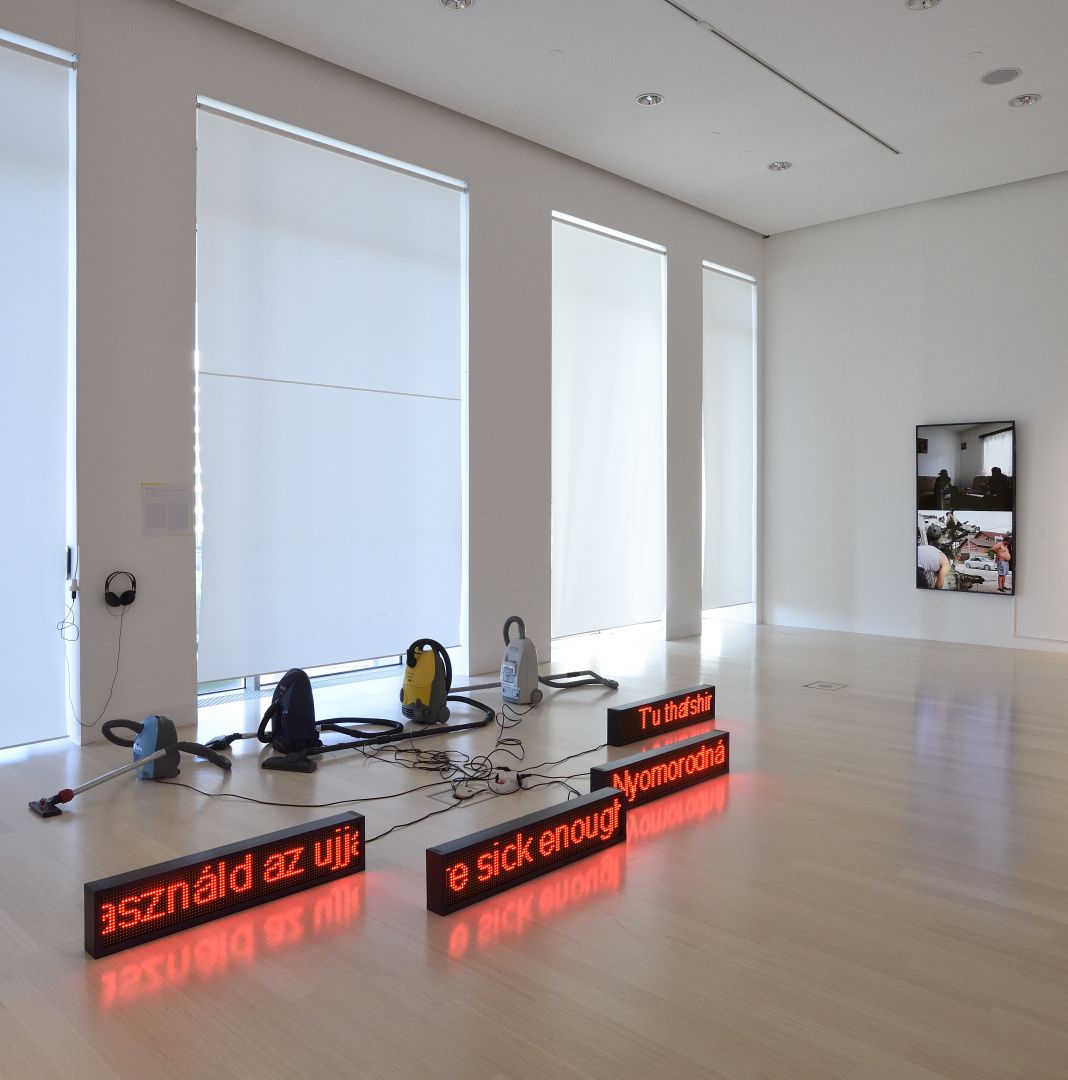HAVEIT Collective
Wild Beast
HAVEIT Collective
Wild Beast, 2018/2022
sound recorded during performance, vacuum-cleaners, LED scrolling text display; dimensions and length variable
Courtesy of the artists
Photo: József ROSTA © Ludwig Museum – Museum of Contemporary Art
Kosovo’s public opinion is dominated by long-established social and religious codes (Kanun, Islam) and is slow to allow less traditional and less patriarchal thinking to emerge. Nevertheless, the young generation is increasingly keen to break out of this rigid system: at the forefront of progressive young contemporaries, the HAVEIT collective is a catalyst, often openly challenging issues considered taboo, taking a strong stance on gender issues, among others. Their critical performances are considered provocative in the Kosovar community, making them spokespersons for the (visual) arts scene that is demanding change. The two pairs of siblings that make up HAVEIT organised their first performance more than ten years ago: since then, their main venue has been the public space, the street, as this is where they can reach the largest number of “ordinary people” indiscriminately, whom they wish to address with their revealing, confrontative actions. The performance entitled Wild Beast explores a collection of curses used primarily within the family, highlighting the weight of the uttered word, which accompanies people from the earliest age. There are many versions of these curses – the highlighted seven were chosen by the members of the collective from their own experience. Although decreasingly in use within the society, curses are verbally very deeply imprinted and passed down from generation to generation. Traditionally, women are responsible for housework and child-rearing: curses are most often uttered when housework is (not) done, so the noise of the vacuum cleaner is “clearly” intertwined with the sound of curses. These two sounds are deeply imprinted on the rebellious “wild beast” child – but when written down, the harshness of the sentences, which have permeated everyday life and are not even noticed any more, becomes much more tangible and sheds light on this barely perceptible yet still heavy psychological burden.
KÁLMÁN Borbála


